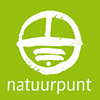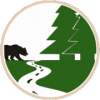Affiliated Organizations and Agencies
 |
MasDFW - Natural Heritage Program |
|
|
|
Massachusetts Highway Division/MassDOT |
|
 |
Miistakis Institute Natural resource and land managers frequently state that they need decisions to be scientifically based. Scientifically robust information is being sought more and more by all types of land managers and stakeholders. These groups include: provincial environment agencies, private land owners, parks departments, municipalities, and land trusts. This sounds straightforward, but it challenges everyone involved in conservation research and management. Being a research institute, a conservation charity, and a social enterprise allows Miistakis to play the different roles necessary to broker, transfer or mobilize knowledge. Miistakis is able to take knowledge from the realm of academia to the realm of land and resource management. In this role, Miistakis may scientifically investigate conservation dilemmas, analyze policy implications, develop decision support tools, catalyze community conservation action, or all of the above. |
Miistakis Institute |
|
Taiwan Endemic Species Research Institute Biological diversity is the keystone of human survival. Healthy biodiversity is critical for our future existence and wellbeing. Since the signing of the Convention on Biological Diversity on June, 1992 by world leaders at the United Nations ‘World Summit' (the Conference on Environment and Development) in Rio de Janeiro, Brazil, the conservation of biological diversity has become a key global issue. During a speech on biodiversity entitled ‘The Living World: Key to Sustainability' at the Academia Sinica, Taipei on May 28, 2000, former Clinton administration presidential advisor on science and technology Dr. Peter H. Raven said that, over the past 50 years, with the addition of about 3.5 billion people, the human population has more than doubled to reach over 6 billion, causing the loss of a quarter of total available topsoil, the loss of one-fifth of agricultural land, and the destruction of one-third of forests. Worst of all, humans have driven the rate of biological extinction, the permanent loss of species, up several times beyond its historical levels so that we are losing 1,000 species each year, or 500 to 1,000 times more than were lost previously, and are threatened with the loss or near extinction of one-third of all species by the year 2050. Some ecologists are even saying that our overuse of the planet's resources is endangering all life on earth, leading us to the brink of the sixth mass extinction. These frightening predictions should serve to awaken us to the importance of global biological diversity and to the need to conserve and utilize resources sustainably. |
Taiwan Endemic Species Research Institute |
|
|
|
Sierra Club Canada Foundation The Atlantic Chapter of Sierra Club Canada is a membership-based organization that strives to protect the marine, coastal and terrestrial ecosystems of the Canadian Maritimes for the enjoyment of current and future generations. |
Sierra Club Canada, Atlantic Chapter |
 |
Institute of Zoology |
|
|
|
Endangered Wildlife Trust (South Africa) The Endangered Wildlife Trust (EWT) is dedicated to conserving threatened species and ecosystems in southern Africa to the benefit of all people.The EWT is a leading, high-profile player in the arena of conservation. We identify the key factors threatening biodiversity and develop innovative methodologies and best practice guidelines to reduce these and promote harmonious co-existence and sustainable living for both people and wildlife. We achieve our goals through specialist programmes, and our skilled field staff are deployed regionally and throughout southern Africa. |
Endangered Wildlife Trust |
|
Biology.ie (Ireland) Biology.ie was founded in August 2005 as an interactive tool for the collection of Nature's Calendar or phenology observations. It grew from a simple flash based map (which is still with us) to using Google maps to collect data from the public.Nature's Calendar includes a Spring Watch and Autumn Watch each year and now has its own domain www.naturescalendarireland.com. The primary aim of Biology.ie is to increase biodiversity awareness by allowing users keep an online map and nature notes. |
Biology.ie home |
|
|
|
||
 |
(Czech Republic) Transport Research Centre CDV - Transport Research Centre is a research institute, established by the Czech Ministry of Transport in 1992, investigating all aspects of transportation including its impact on the environment. We study landscape fragmentation as a result of the transportation infrastructure and conflicts between human society and animals. Animal-vehicle collisions (AVC) represent an important factor causing roadkill and property losses including human deaths and injuries. Approximately 5000 AVC arerecorded each year in the Czech Republic. |
CDV - Transport Research Centre |
 |
Natuurpunt (Belgium) Natuurpunt is an independent volunteer association that provides for the protection of vulnerable and endangered nature in Flanders. With more than 6,000 volunteers, organized in nearly 160 local chapters, the association manages more than 22,000 hectares of Flemish nature in 500 different natural areas. |
Natuurpunt |
|
|
Maine Audubon (US) Maine Audubon works to conserve Maine’s wildlife and wildlife habitat by engaging people of all ages in education, conservation and action. |
Maine Audubon Homepage |
 |
Road Ecology Center (US) The UC Davis Road Ecology Center brings together researchers and policy makers from ecology and transportation to design sustainable transportation systems based on an understanding of the impact of roads on natural landscapes and human communities. Browse this website to learn more about the Center and the emerging science of Road Ecology. |
Road Ecology Center |